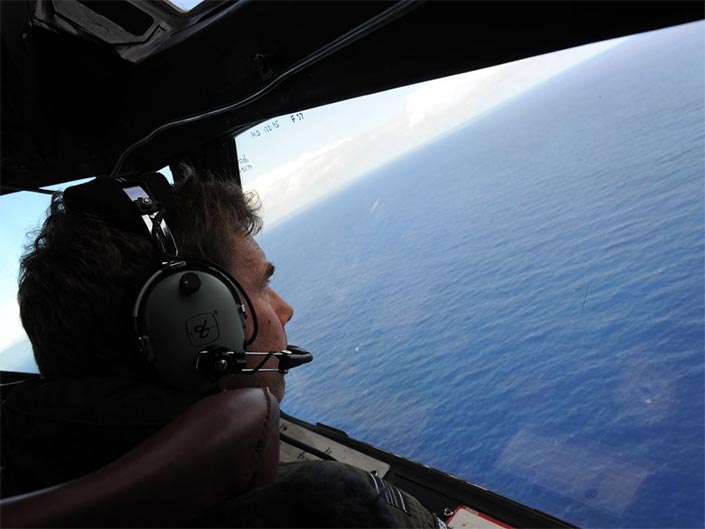MH370: Search team looking for Malaysia Airlines flight reveals new theory on missing plane's location
Experts say plane could have glided rather than dived into the sea meaning they have been searching wrong patch of Indian Ocean for two years

The search team looking for Malaysia Airlines jet MH370 which vanished in March 2014, has said they may have been looking in the wrong place.
Searchers led by engineering group Fugro have been combing a 120,000 square kilometre area of the southern Indian Ocean off western Australia for the past two years.
However, the team has said they now believe the aircraft may have glided down rather than dived in the final moments of its descent, which would have carried the plane beyond the current search zone.

The hunt for the missing aeroplane is due to finish in three months, and the official search could then be called off. So far nothing has been found.
Only one piece of debris has been linked with the plane with certainty – a flaperon found on a beach on Reunion island 2,500 miles west of the search area.
The Boeing 777 aircraft disappeared after leaving Kuala Lumpur en route to Beijing, with 239 passengers and crew on board.
“If it's not there, it means it's somewhere else,” Fugro project director Paul Kennedy told Reuters.
Mr Kennedy has said it is not impossible they somehow failed to spot the aircraft in the search zone, but he and his team argue a more likely option is the plane glided down - meaning it was manned at the end - and made it beyond the area marked out by calculations from satellite images.
“If it was manned it could glide for a long way,” Mr Kennedy said. “You could glide it for further than our search area is, so I believe the logical conclusion will be well maybe that is the other scenario.”
Doubts over the validity of the search zone are expected to fuel calls for the search team to make their data publicly-available so that rival investigation teams can pursue a collaborative “open source” method of hunting the missing plane.
The search team’s controlled glide hypothesis is the first time officials in charge of the case have suggested a pilot may have remained in control during the flight’s final moments.
Mr Kennedy said a skilled pilot could glide a Boeing 777 the same as MH370 approximately 120 miles from cruising altitude after running out of fuel.
This scenario would mean an entirely new search area would have to be calculated.
“The end-of-flight scenarios are absolutely endless,” Fugro managing director Steve Duffield said. “Which wing ran out of fuel first, did it roll this way or did it tip that way?”
But any further search would require a fresh round of funding from the Chinese, Australian and Malaysian governments.
To date the search has cost almost $137m (£103m), making it the most expensive search in aviation history.
The three governments have previously said that unless major evidence comes to light, the search would not be extended.
Reuters contributed to this report
Join our commenting forum
Join thought-provoking conversations, follow other Independent readers and see their replies
Comments
Bookmark popover
Removed from bookmarks